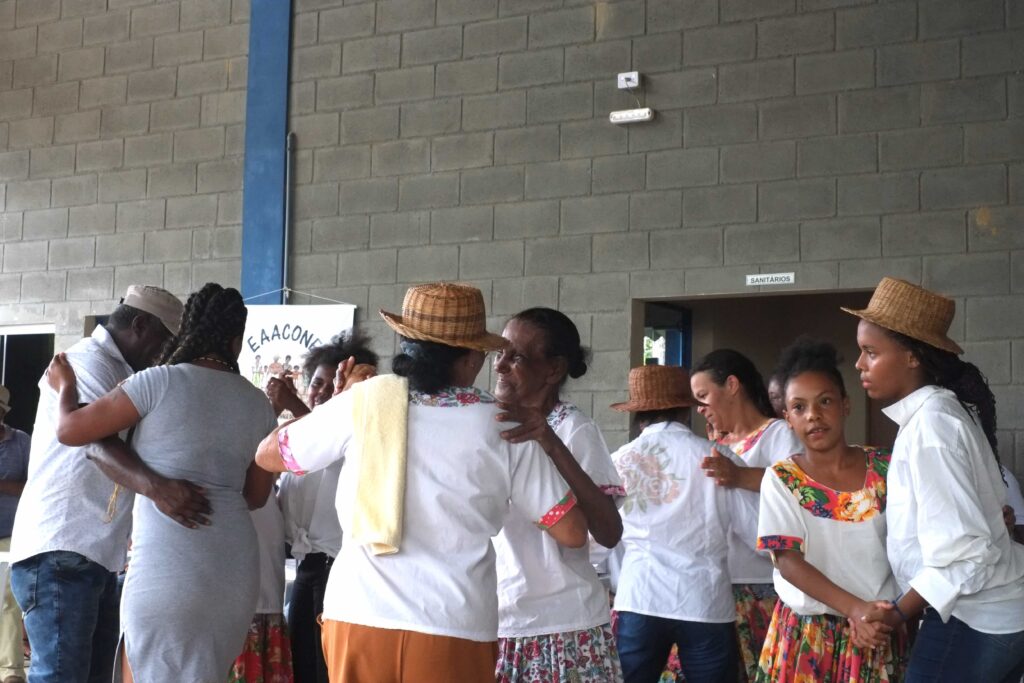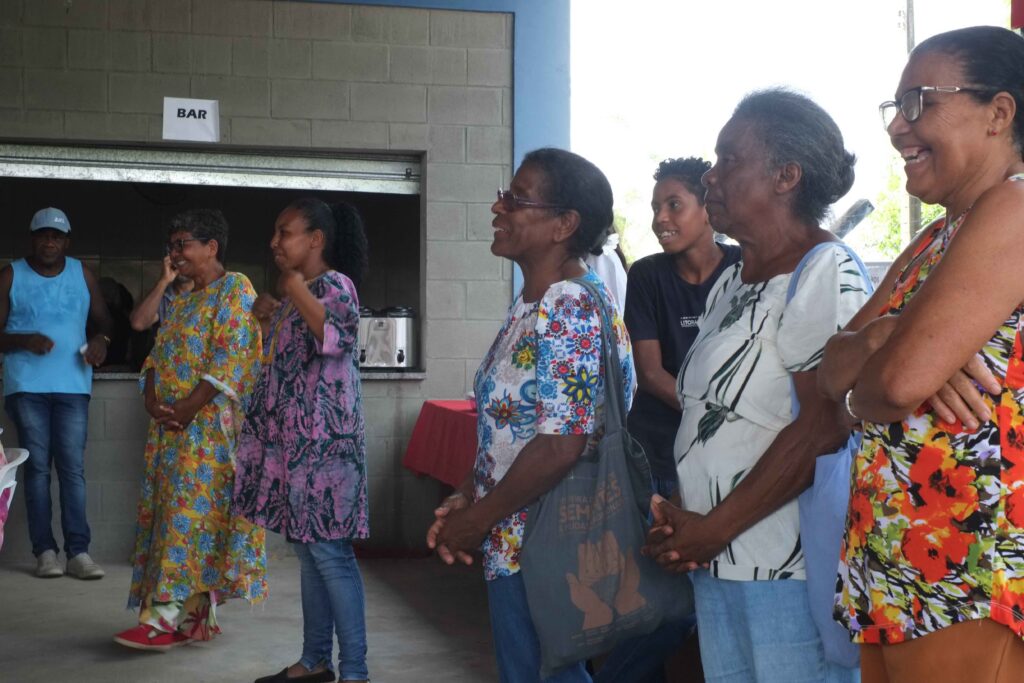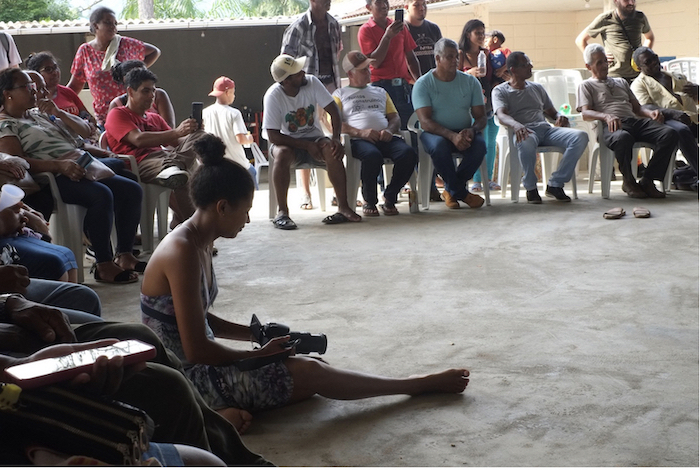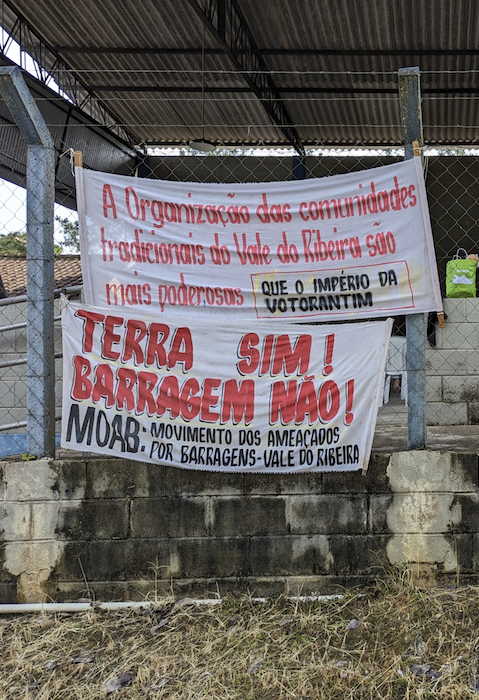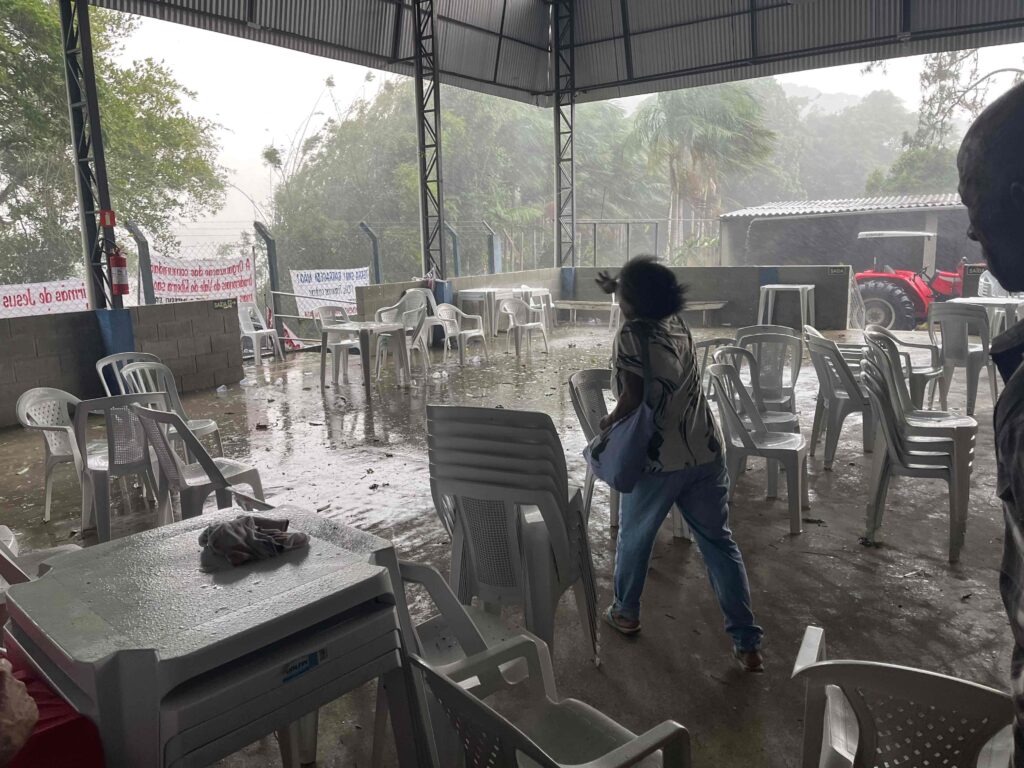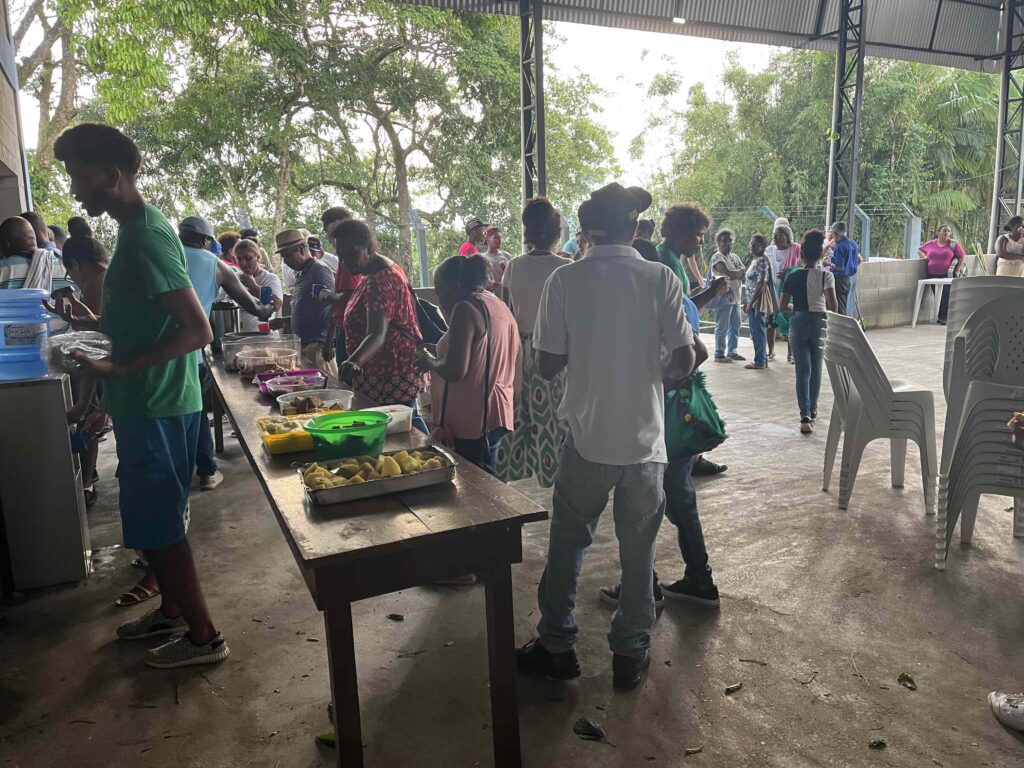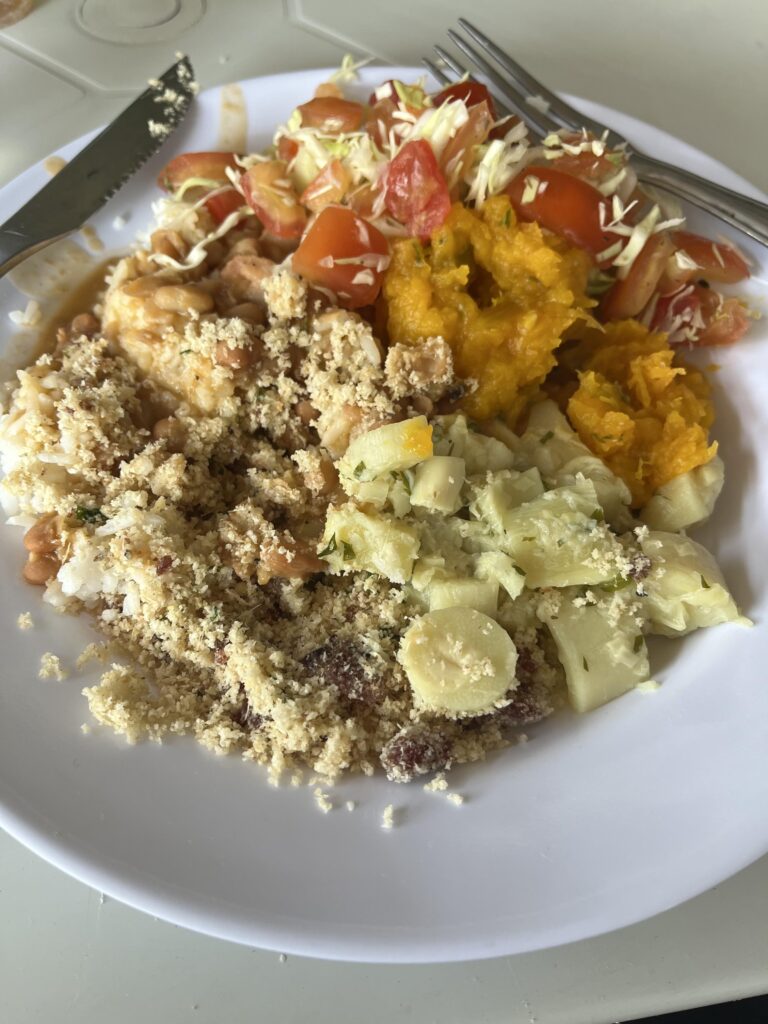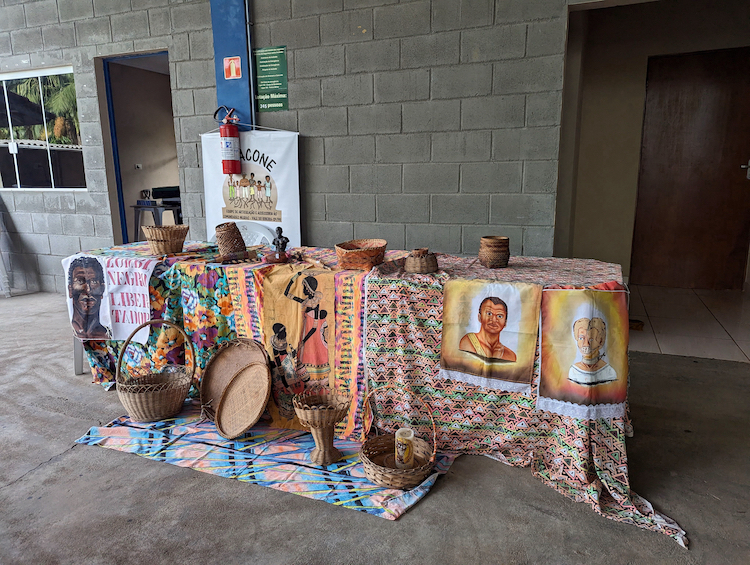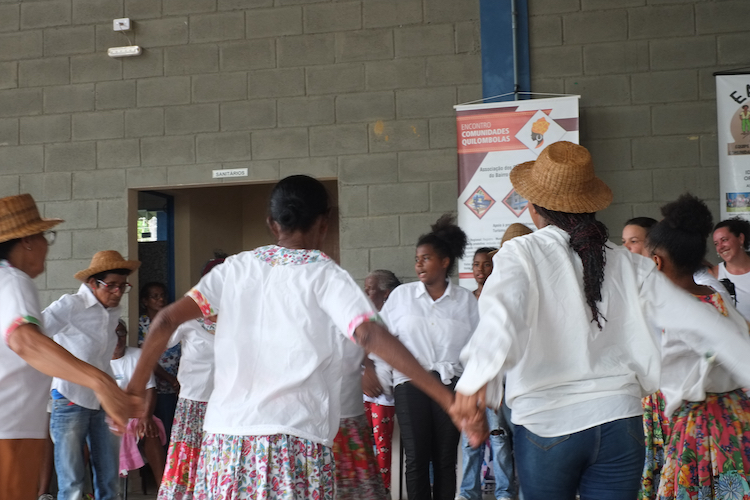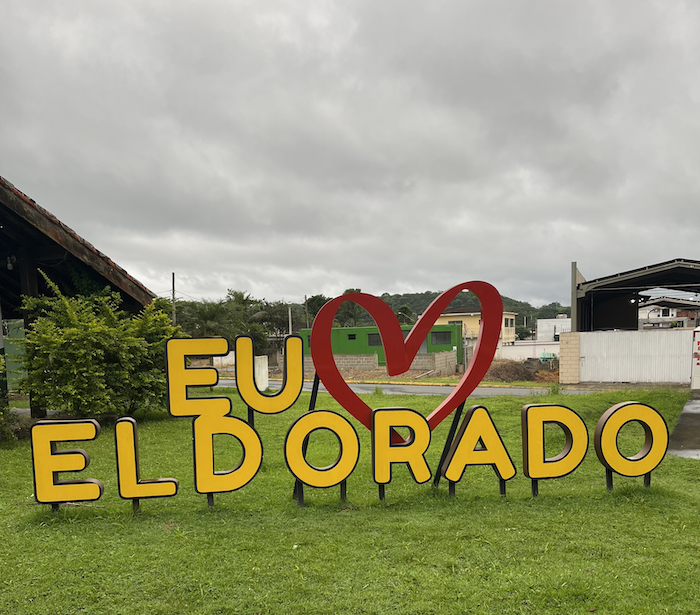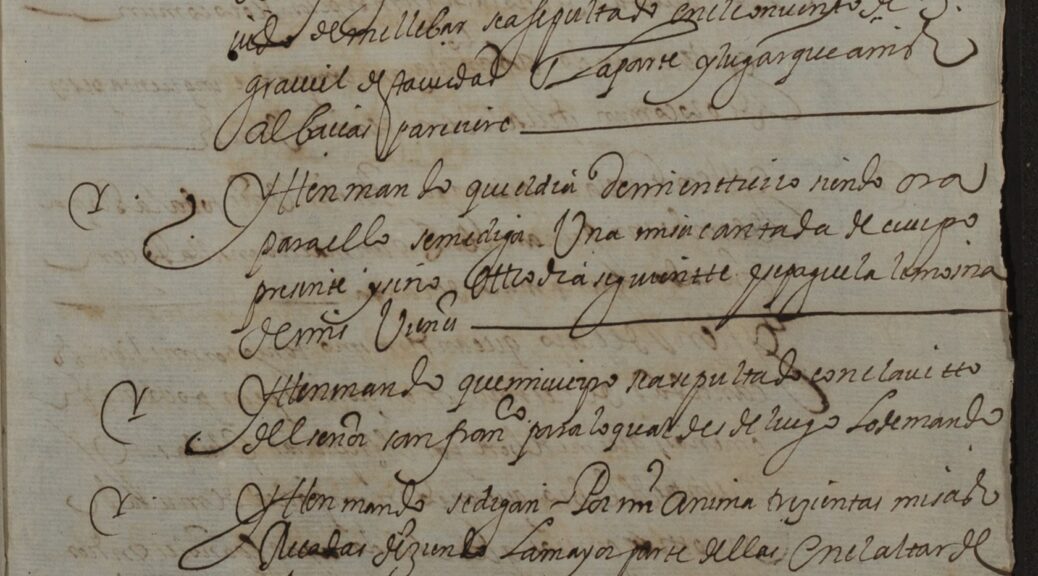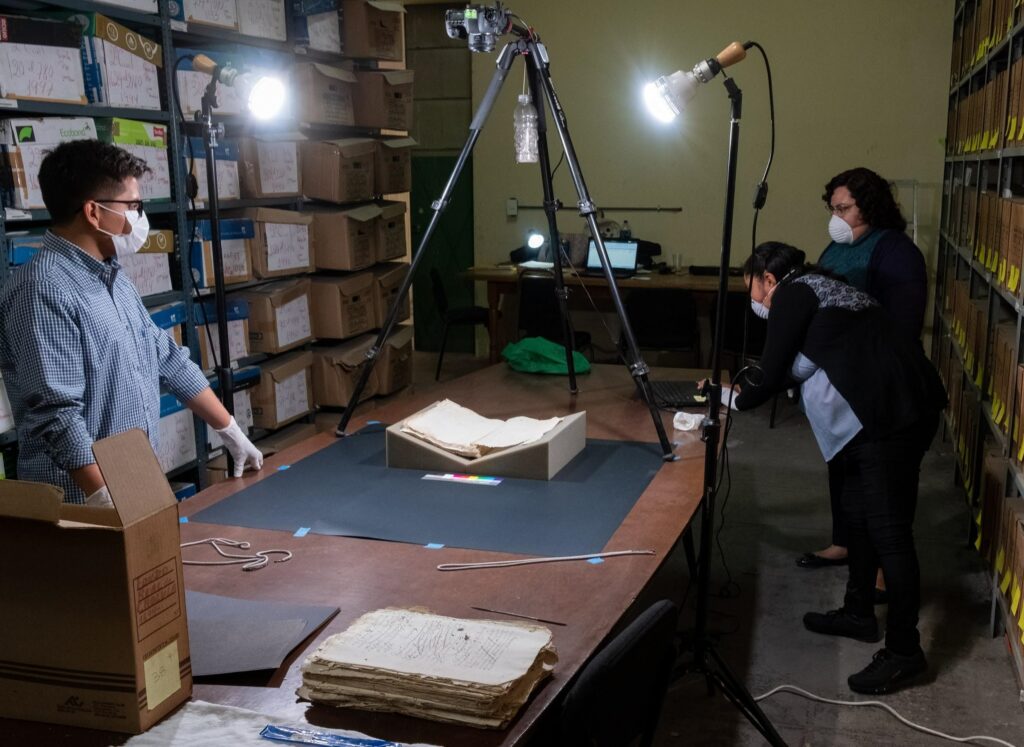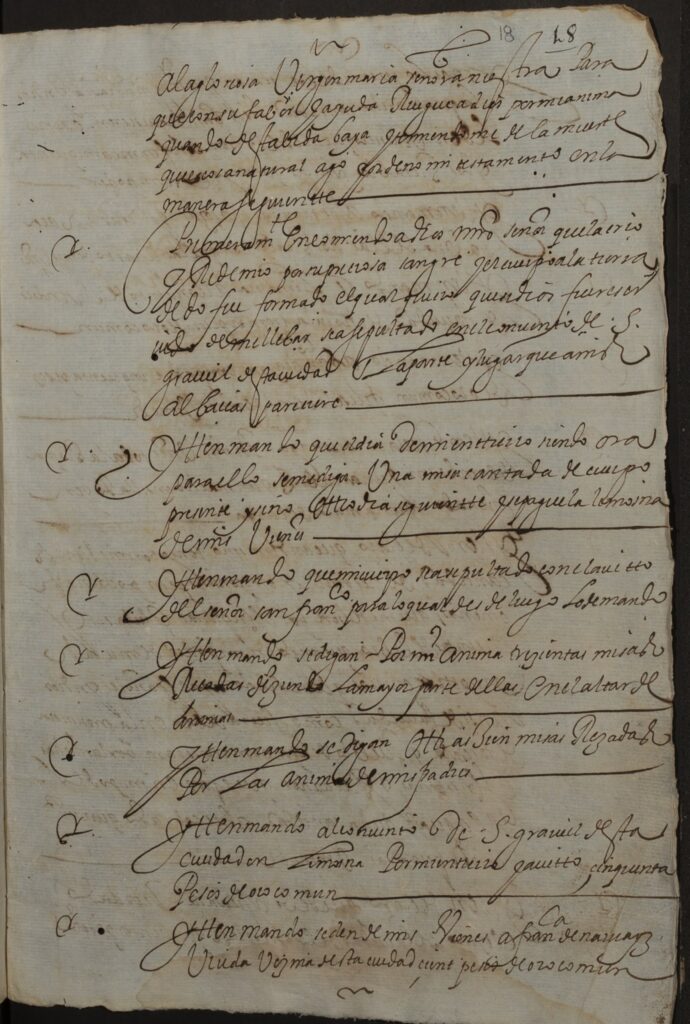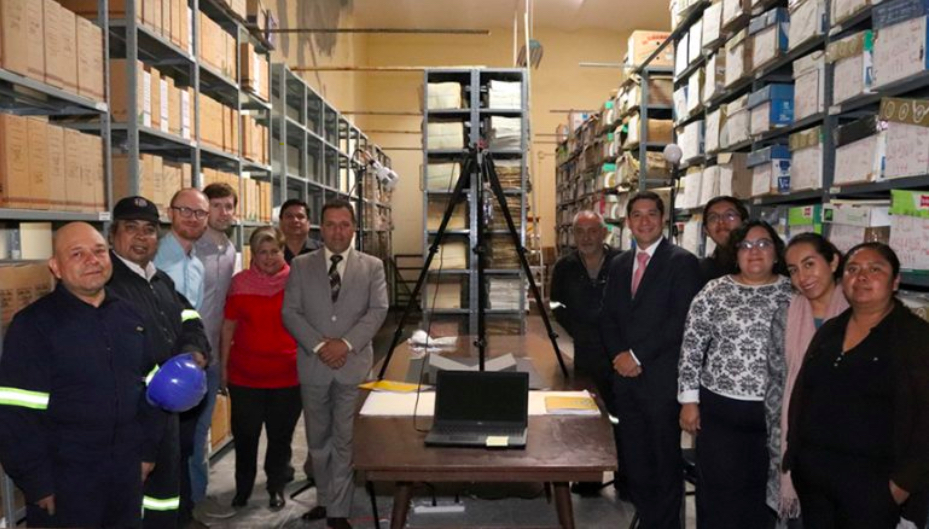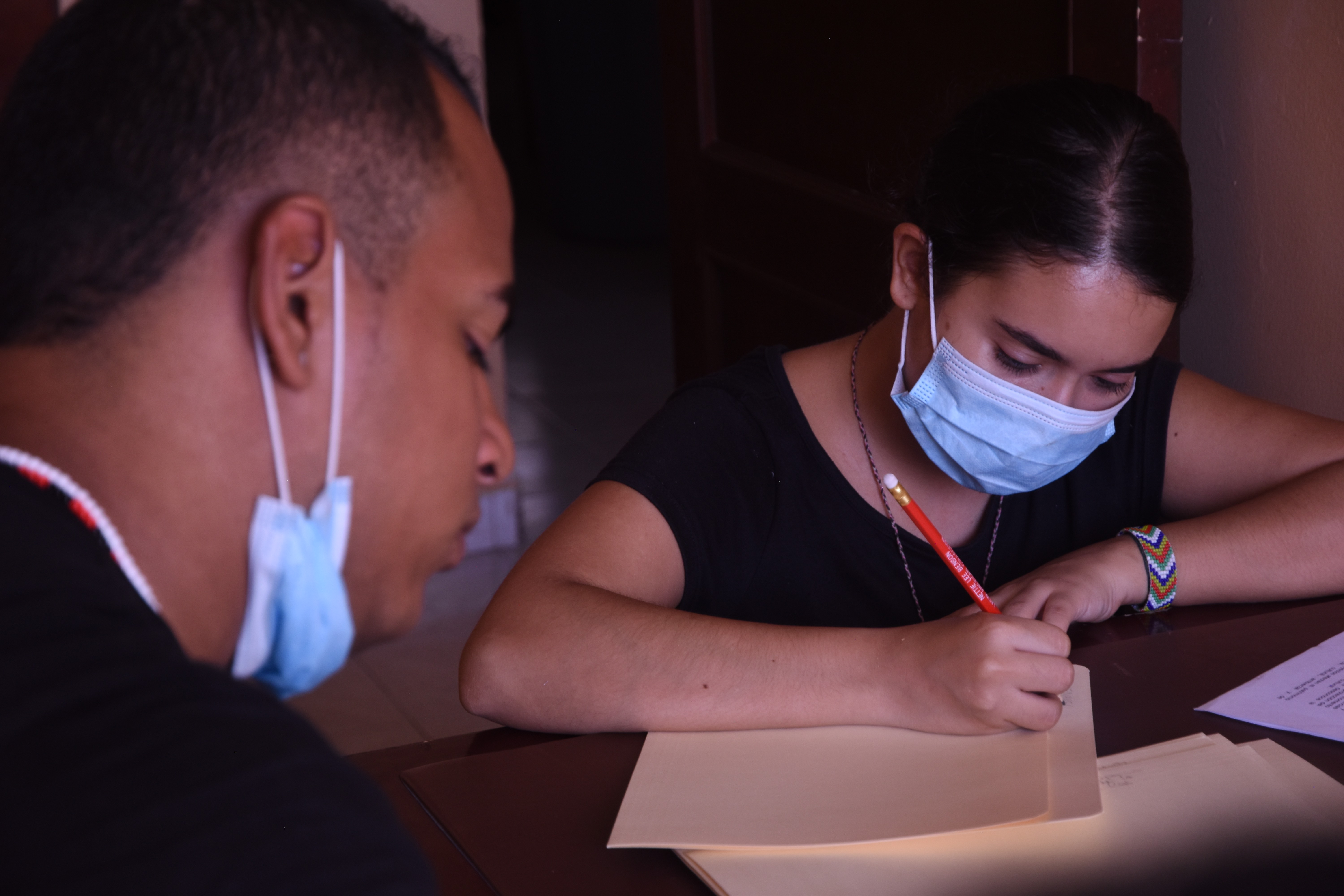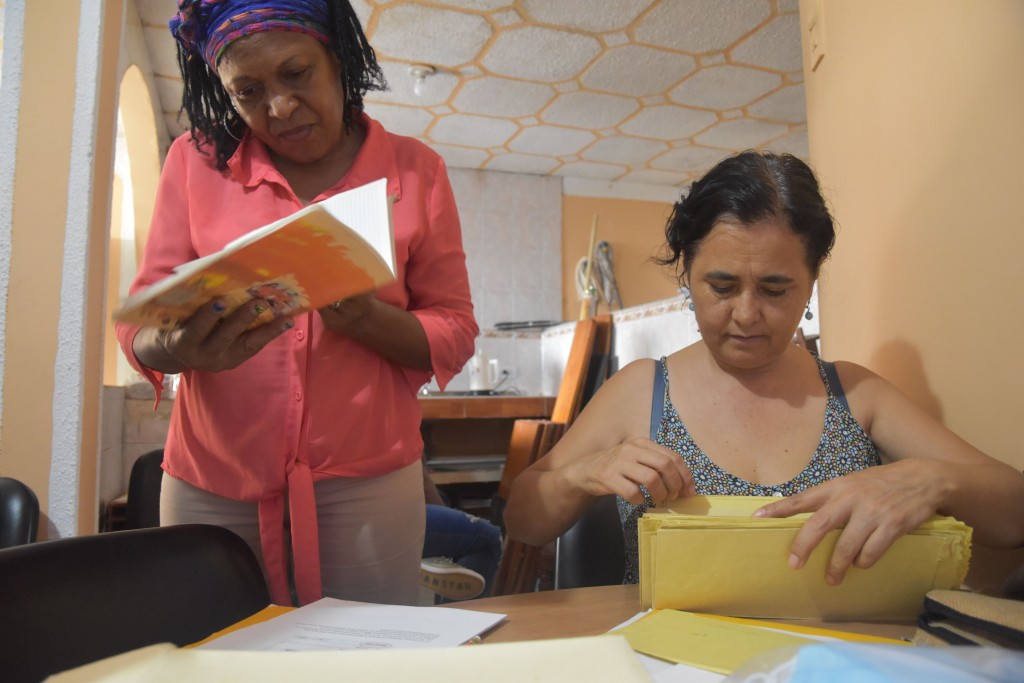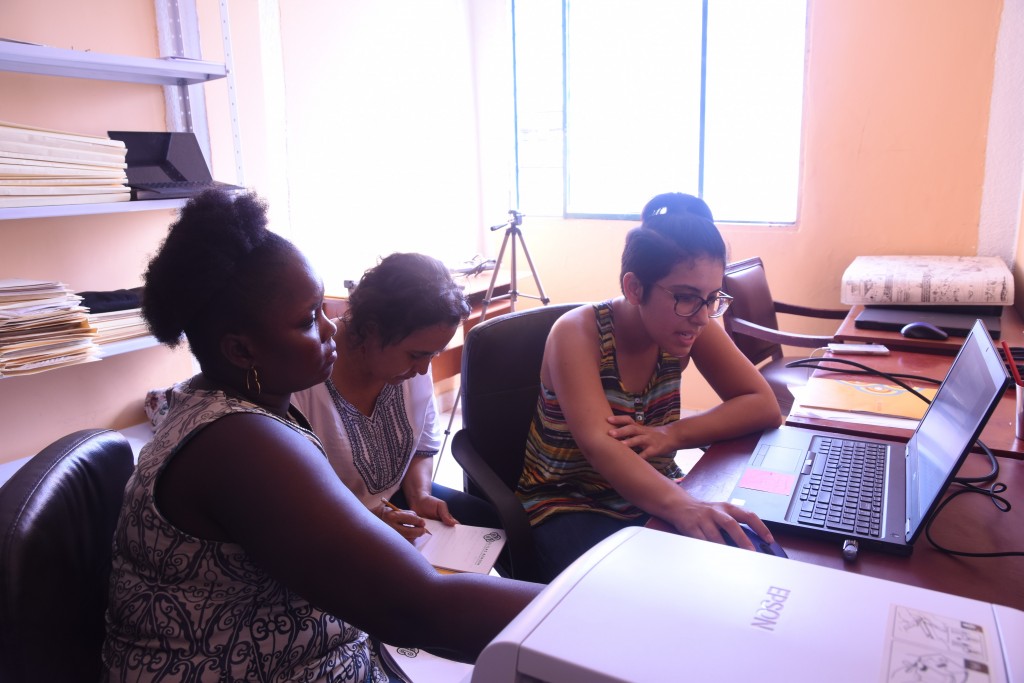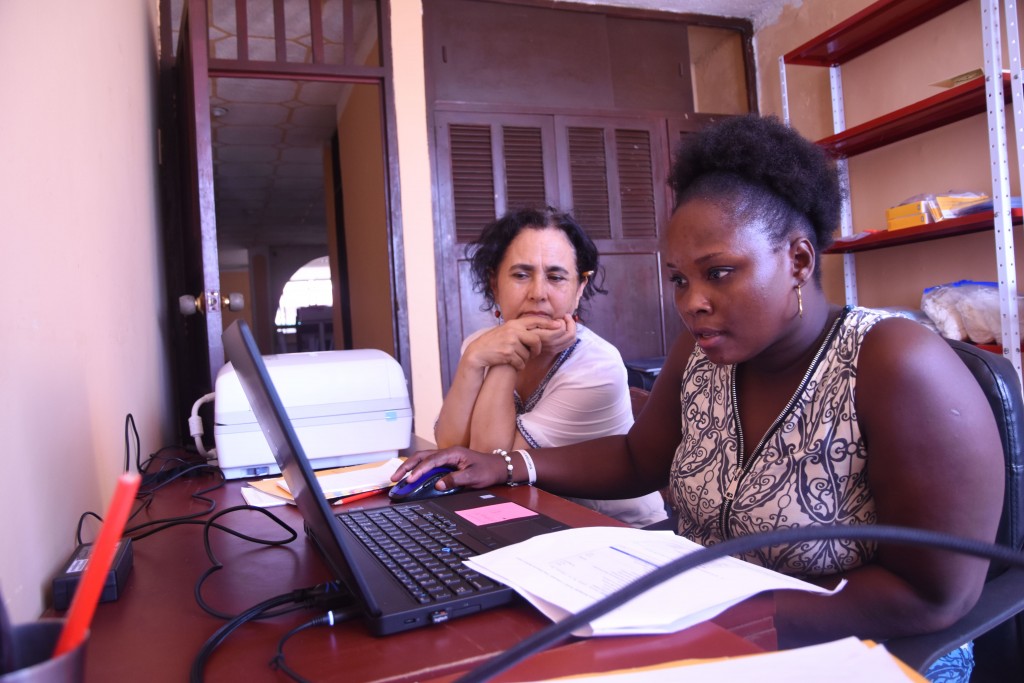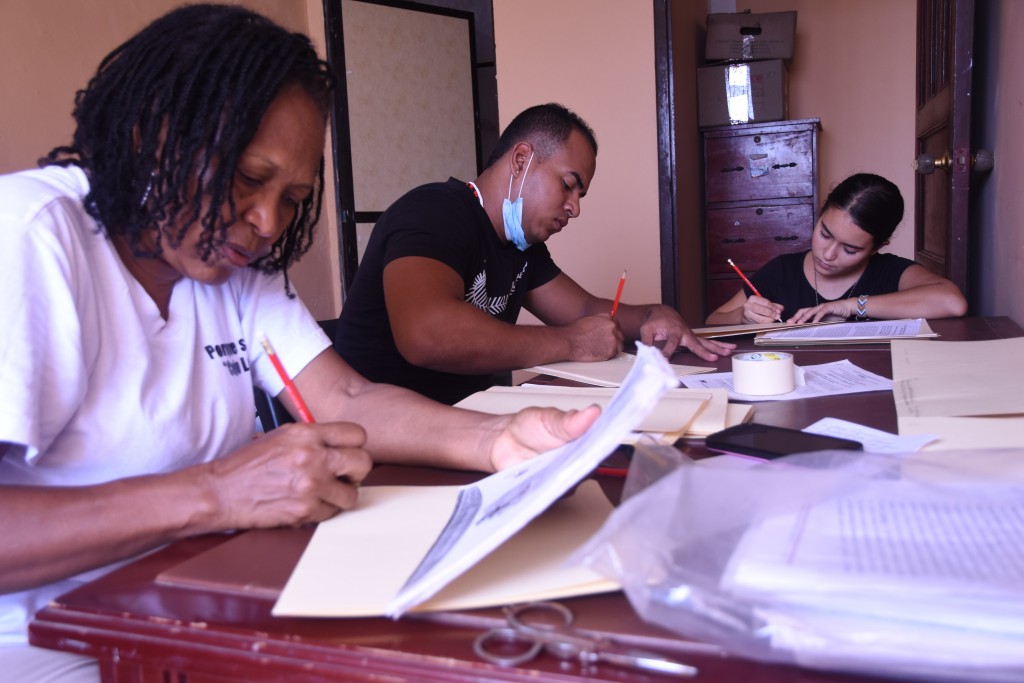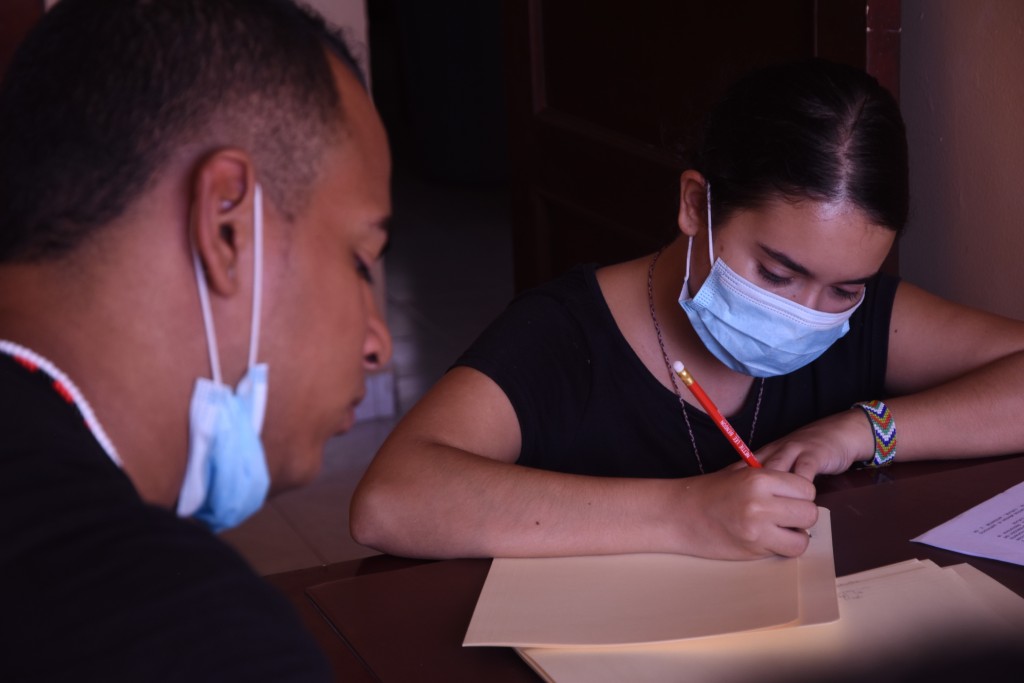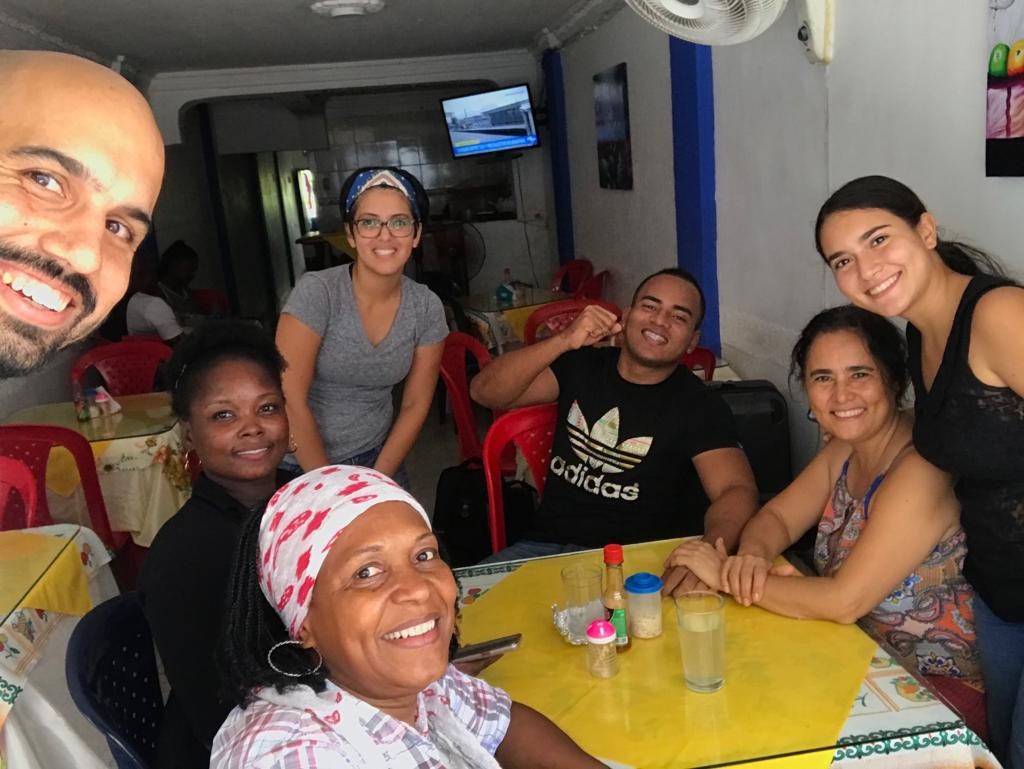Ryan Lynch, Head of Special Collections and Senior Archivist at the Nettie Lee Benson Latin American Collection, and Rachel E. Winston, Black Diaspora Archivist, attended the annual meeting of traditional Black communities in Eldorado, state of São Paulo, as guests of EAACONE, one of the Benson’s archival partners.
ONE OF THE PARTNERSHIPS that emerged from the LLILAS Benson Mellon-funded project “Cultivating a Latin American Post-Custodial Archival Community” involved extensive collaboration with EAACONE, Equipe de Articulação e Assessoria às Comunidades Negras do Vale do Ribeira, located in Eldorado, Vale do Ribeira, São Paulo, Brazil. (EAACONE’s name translates as Team for Articulation and Assessment of Black Communities of Vale do Ribeira).
Digitized materials and metadata from the EAACONE archive are available in three languages on the Latin American Digital Initiatives Repository. LLILAS Benson’s collaboration consisted, in part, of training of EAACONE staff in digitization and metadata, as well as funding the purchase of equipment and the salaries of archival employees from the quilombola* community. Additional funds covered the creation of a traveling exhibition for the purpose of introducing schoolchildren and other community members to the archive and to the history of EAACONE and MOAB, the anti-dam movement with which it is associated.
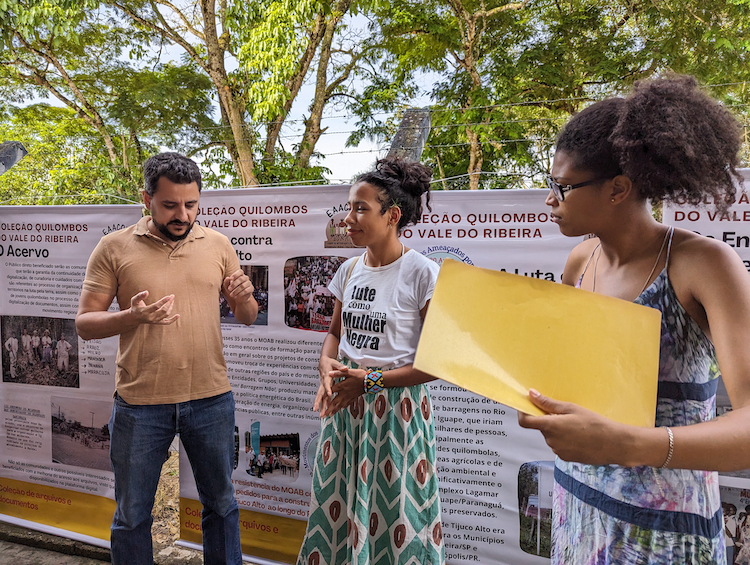
EAACONE’s archive, titled Quilombos do Vale do Ribeira (Quilombos of Vale do Ribeira), consists of materials compiled from 25 years of EAACONE history and 35 years of MOAB (Movimento dos Ameaçados por Barragens, or Movement of Peoples Threatened by Dams), a grassroots movement protesting the construction of hydroelectric dams with negative impacts on the communities and environment of Vale do Ribeira. The dates of materials range from 1955 to the late 1990s.
Several members of the LLILAS Benson archival team have visited Eldorado during the years of the collaboration. Most recently, Ryan Lynch (Benson Head of Special Collections and Senior Archivist) and Rachel E. Winston (Black Diaspora Archivist) visited Eldorado to attend the XXVIII Encontro das Comunidades Negras do Vale do Ribeira (28th Meeting of Black Communities of Vale do Ribeira)—known as the Encontrão (Big Meetup)—on November 18, 2023. Documents from the EAACONE archives were on display on tables at the event, as were vinyl panels from a traveling exhibition about the archive and the history of the area’s Black communities.
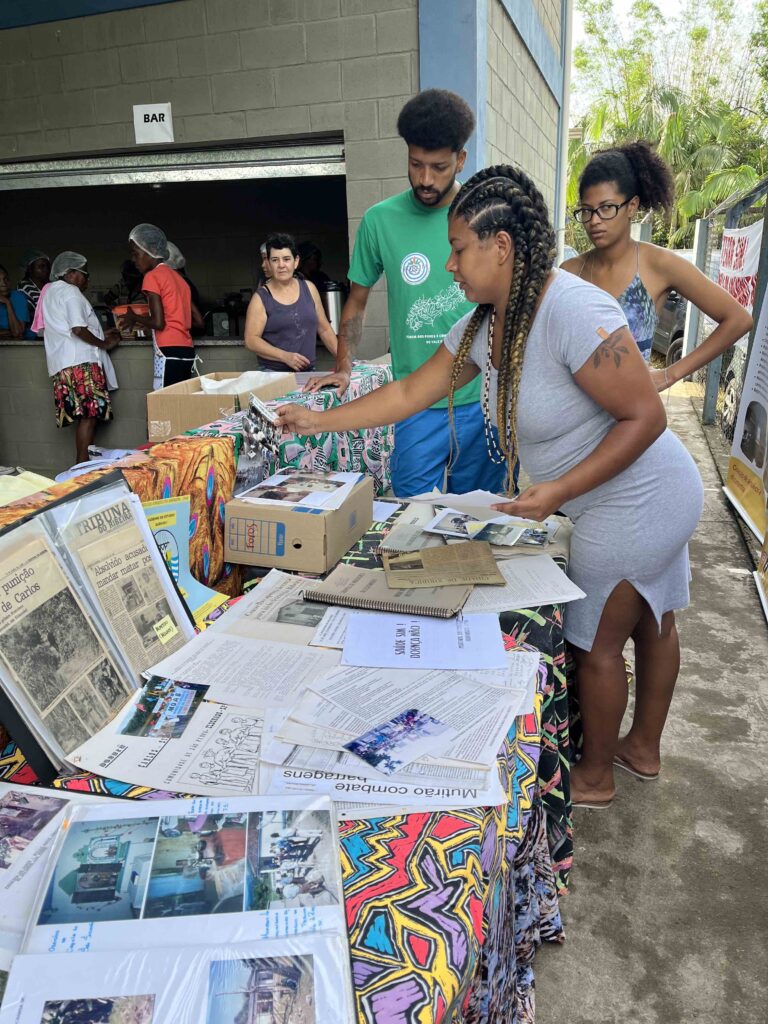
“Attending the Encontrão helped me contextualize the work that EAACONE does with quilombo communities,” said Lynch. “Watching residents of the different communities see themselves, or their friends and relatives, in the documents, was an invigorating reminder of the importance of our work as archivists and post-custodial partners. Many of the people in attendance had made history and continue to make history. Thanks to the Mellon grant, their story is available not only to themselves and their descendants but also to K–12 students, researchers, and activists in other independent Black communities in the Americas.”
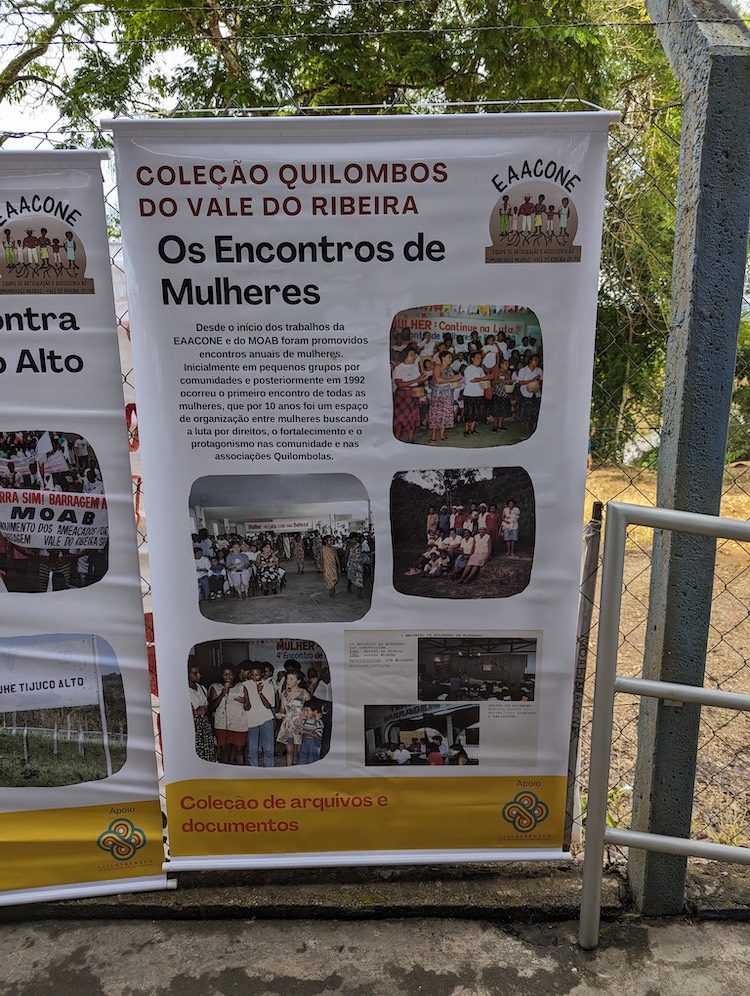
The LLILAS Benson collaboration was included in the event via the use of the LLILAS Benson logo on exhibition materials, and Lynch noted that it was also mentioned multiple times by speakers. He and Winston were introduced as VIPs at the beginning of the proceedings, and Lynch was invited by organizers to deliver a few impromptu remarks.
“I look forward to exploring future partnerships that will allow us to continue to play a role in this important documentation and exchange of knowledge and experience,” he said.
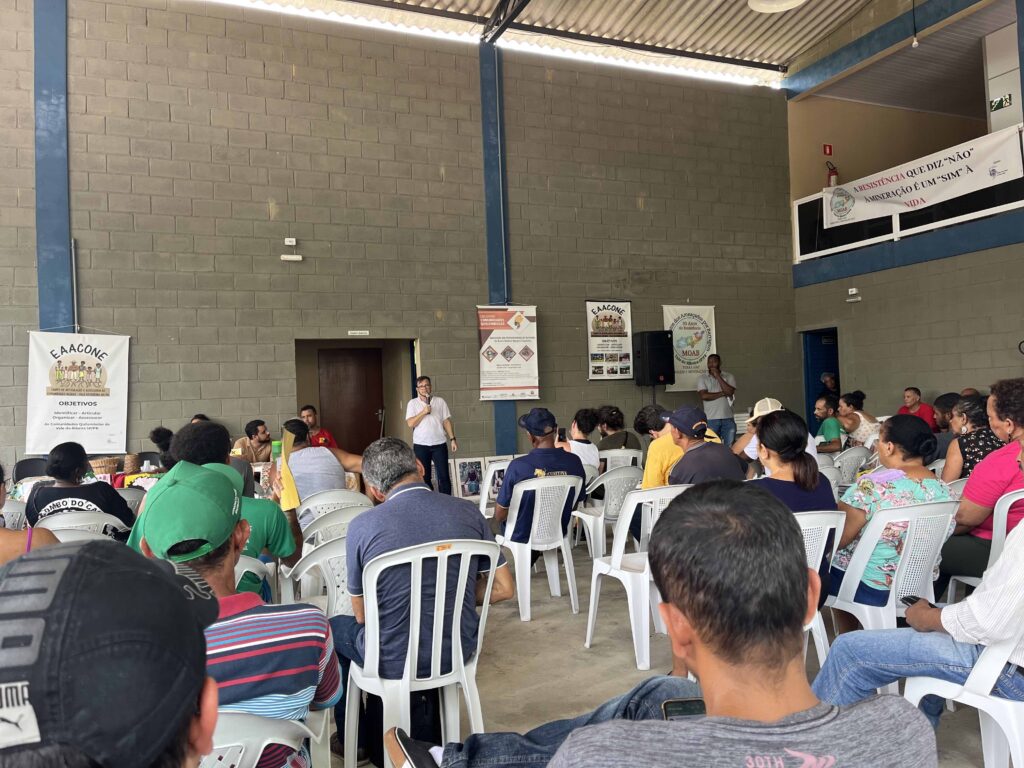
In her role as Black Diaspora Archivist, Winston has visited more than one post-custodial partner in Latin America. Both she and Lynch had visited Eldorado previously. “Reconnecting with EAACONE colleagues in person, and meeting more community members (documented and represented in the EAACONE collection) was incredible,” Winston said.
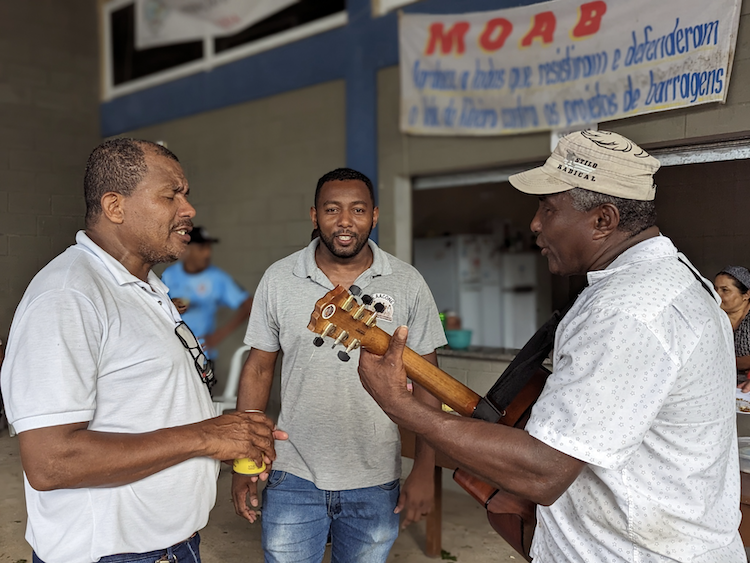
“Being a part of this project and partnership with EAACONE from the beginning to the end has been a highlight of my career at the Benson,” Winston adds. “When there, the importance of the work becomes more salient. EAACONE has been and continues to be an important fixture in the Vale do Ribeira. The impact of their work is amplified by our collaboration and by the work we do to preserve their archive. To see the EAACONE materials in the place of creation, used and viewed by the community members represented in them, and to be in community with that community, is a remarkable experience, and a reminder of the power of post-custodial archival praxis.”
*Quilombolas are Afro-descendant Brazilians who live in rural Black communities known as quilombos, which were originally established by enslaved people who fled enslavement to establish autonomous communities. There are 88 such communities in Vale do Ribeira, an area in the Brazilian states of São Paulo and neighboring Paraná. To read more about quilombolas in Vale do Ribeira, see Edward Shore, Brazilian Roças: A Legacy in Peril (2017) and The Quilombo Activists’ Archive (2019).
